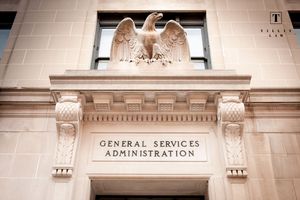The Contract Disputes Act (CDA) of 1978, applicable to claims arising under or relating to U.S. federal government contracts, provides contractors a choice of forum to appeal an adverse final decision by a federal contracting officer (CO). Before filing a contract claim against the government, it is helpful to remember the CO’s dual role in the federal procurement process. Under the CDA, the CO represents the government as a party to the contract and renders decisions on claims arising under or relating to that contract.
When disputes arise under the performance of government contracts, contractors may invoke the procedures of the CDA by presenting a claim to the CO. While the CDA does not expressly define a claim – in order to receive a final decision from the CO, contractors’ claim to the CO must be in writing, provide adequate notice to the government of the basis for the demands and relief sought, while clearly requesting a decision from the CO. Upon the issuance of the CO’s final decision, a prime contractor on a federal government contract can challenge the decision by filing a suit at the Court of Federal Claims (COFC) or through an appeal filed at a federal board of contract appeals.
Both the Court and the Boards present unique considerations, limitations, and advantages to contractors seeking to appeal an adverse CO’s final decision. COFC and the contract appeals boards are not bound by each other's precedent.
o Court of Federal Claims
Under 28 U.S.C. § 798 COFC is permitted to hold court anywhere in the U.S. using a federal court or comparable GSA-administered facilities. As a court of national jurisdiction, COFC may hear matters under the CDA for claims arising under or related to federal contracts. In appropriate circumstances, court proceedings may be held in a foreign country if the laws of that country do not prohibit such proceedings. Boards of contract claims decisions are not binding on COFC, whereas federal circuit and supreme court decisions are. Contractors have one year from the date of the CO’s adverse decision to file their complaint at COFC. COFC decisions may be appealed to the Court of Appeals for the Federal Circuit.
o Contract Appeals Boards
The agency that issued the contract in question determines which board of contract appeals will handle a contract appeal. Contractors have a much shorter 90-day time frame for filing their contract appeals at the boards. If the contractor decides to appeal the unfavorable decision made by the CO to a board of contract appeals, they may need to file the appeal with one of the three potential boards of contract appeals, depending on the agency involved. The three boards of contract appeals are:
- Armed Services Board of Contract Appeals (ASBCA)
- Civilian Board of Contract Appeals (CBCA)
- Postal Service Board of Contract Appeals (PSBCA)
As the name suggests, the ASBCA has jurisdiction over Department of Defense (DOD) agency contracts and the National Aeronautics and Space Administration (NASA) contracts. Meanwhile, the CBCA has jurisdiction over contract appeals of federal civilian agencies, and PSBCA has jurisdiction over postal service contracts and regulatory commission agencies. Contractors may appeal the Board of Contracts Appeals’ decision to the Court of Appeals for the Federal Circuit within 120 days.
This Federal Contract Claims Insight is provided as a general summary of the applicable law in the practice area and does not constitute legal advice. Contractors wishing to learn more are encouraged to consult the TILLIT LAW PLLC Client Portal or Contact Us to determine how the law would apply in a specific situation.





